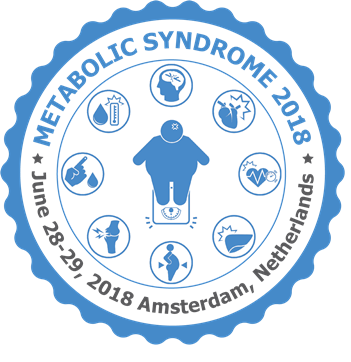
Shaodong Guo
Associate Professor, Department of Nutrition and Food Sciences, Texas A&M University, Texas 77843, U.S.A.
Title: Insulin Signaling, Resistance, and Metabolic Syndrome: Insights from Mouse Models into Disease Mechanisms
Biography
Biography: Shaodong Guo
Abstract
Insulin resistance serves as the major mechanism for the development of obesity, which is pandemic in population worldwide over the past decades, largely owing to over nutrition. Excess energy stores in the adipose tissue and other organs as lipids, promoting lipotoxicity and metabolic inflammation, activating intracellular protein kinases to impair insulin signaling components, and resulting in insulin resistance. Insulin resistance is the key etiologic defect that defines “metabolic syndrome”, a group of interrelated disorders, including obesity, hyperglycemia, dyslipidemia, and hypertension. Following insulin resistance, many of patients with the metabolic syndrome eventually developed pancreatic β-cell failure, which triggers the onset of type 2 diabetes mellitus (T2DM) and its complications. Our cell- and animal-based studies demonstrate that insulin and its signaling cascades normally control cell growth, metabolism and survival through activation of mitogen-activated protein kinases (MAPKs) and phosphotidylinositide-3-kinase (PI3K), of which activation of PI-3K-associated with insulin receptor substrate-1 and -2 (IRS1, 2) and subsequent Akt→Foxo1 phosphorylation cascade has a central role in control of nutrient homeostasis and organ survival. Inactivation of Akt and activation of Foxo1, through suppression IRS1 and IRS2 in a variety of organs following over nutrition, lipotoxicity, and inflammation may form a fundamental mechanism for insulin resistance in humans. This seminar discusses the basis of insulin signaling, resistance, and how excess nutrients and lipid signaling from obesity promotes inflammation and insulin resistance, promoting organ failure with emphasis on the IRS and the forkhead/winged-helix transcription factor Foxo1.

